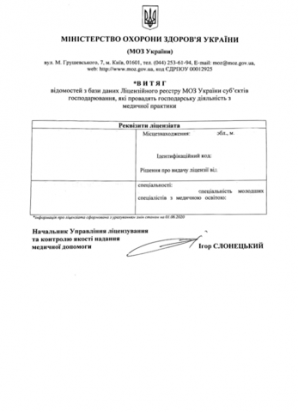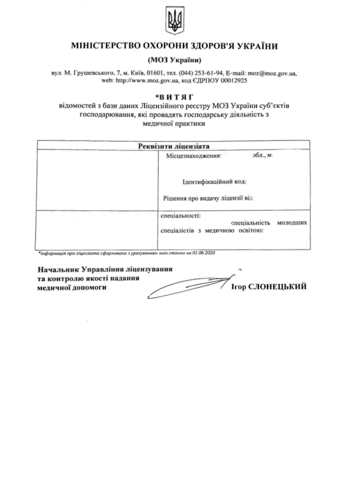Unscheduled Inspection of a Dental Office: How to Avoid Fines
Cost of services:
Reviews of our Clients
... our work on joint projects assured us of your high level of professionalism
An unscheduled tax audit at a medical facility—and complete documentation “collapse.” This is exactly the situation our client, a self-employed medical practitioner and owner of a private dental clinic, faced.
The clinic was subjected to an unannounced documentary audit, during which inspectors uncovered numerous violations in the records of the sole proprietorship medical facility. The findings included the absence of internal orders, accounting policies, primary accounting documents, payroll procedures, and internal administrative records.
Naturally, these shortcomings had immediate consequences: the tax authority issued a warning, signaling the possibility of a follow-up inspection. To eliminate risks and prepare a comprehensive, structured documentation package that meets the requirements of both tax and medical regulatory bodies, the client turned to our law firm.
We carried out a detailed audit, identified the gaps, and compiled a complete set of necessary documents tailored to the specifics of dental practice. Based on this case, we outline how to prepare for inspections at medical facilities, what documentation is required, and offer practical guidance for maintaining compliance in medical operations.
You might also like: Custom Document Packages for Multispecialty Medical Centers
Tax Audits of Medical Facilities: Legal Grounds and Penalties
Like any other business entity, medical institutions are subject to oversight by tax authorities. According to the Tax Code of Ukraine, specifically Articles 75 to 77, tax authorities are entitled to conduct both scheduled and unscheduled audits. These audits may be documentary or cameral.
Grounds for initiating an unscheduled audit of a medical facility may include the absence or improper maintenance of documentation, violations identified during prior inspections, or information about potential tax violations received from counterparties, patients, or through the State Tax Service’s analytical tools.
The consequences of such audits can be significant: if violations are identified, the institution may face fines of up to 25% of the unpaid tax amount, and in some cases, up to 50%. Additional penalties may include interest charges and fines for late reporting or improper storage of primary documents.
You might also like: Revocation and Suspension of Medical Licenses
Preparing Core Documentation for a Medical Facility
As part of the audit preparation process, we emphasized to the client not only the importance of maintaining a complete set of documents for a medical facility, but also the need for proper documentation standards. We previously covered the topic of core documentation and related requirements in our article Documentation for Medical Centers: Templates, Completion Standards, and Form Management.
At the initial stage of our work, we reviewed and structured the required documentation for the client’s dental practice in accordance with legal requirements and the specifics of their medical activity. All legal aspects were considered—from administrative orders to medical and HR-related records. In working with the client, our healthcare law specialist:
- Carefully reviewed existing documents and organized them to meet regulatory standards.
- Developed internal policies and procedures, including documentation and recordkeeping systems for the clinic.
- Prepared SOPs (Standard Operating Procedures) for each operational area, particularly in patient care and financial processes.
SOPs and Their Role in Medical Facility Documentation
During the course of our work, we placed particular emphasis on developing Standard Operating Procedures (SOPs). These are documents that regulate the day-to-day activities of a medical facility’s staff. SOPs not only help prevent confusion among personnel but also serve as evidence of organizational structure during inspections.
Our legal team did more than compile templates, we created a customized SOP package tailored to the specific operational needs of the client’s clinic. This included both administrative documents outlining the general scope of activities and practical step-by-step instructions answering the “Who?”, “What?”, “Where?” and “When?” within each department.
For the client, this meant more than simply having the required documentation in place. It ensured:
- Clearly defined responsibilities for each process.
- Standardized instructions for all staff.
- Reduced human error in daily operations.
- Lower risk of regulatory claims during inspections.
As a result, we developed SOPs covering the clinic’s entire operational cycle, from initial patient registration to document archiving.
You might also like: Legislative Changes for Dental Practices: Impact of Amendments to DBN B.2.2-10:2022 on Dental Clinics
How to Prepare for an Audit and Avoid Penalties
Thanks to a prompt assessment of risk areas and the implementation of comprehensive documentation, our client successfully avoided penalties following a repeat tax audit of their dental clinic. The practice was deemed well-organized, preserving both financial stability and reputation in the healthcare market.
Based on this case, we developed a step-by-step action plan to help any medical facility prepare for tax inspections:
- Conduct an independent audit of all documentation types.
- Implement a document management system that enables quick access to any required record.
- Develop or update SOPs for each operational area.
- Organize HR records and employment contracts.
- Establish internal policies for handling cash, non-cash payments, and income/expense tracking.
- Appoint responsible personnel for document storage and updates.
- Provide staff training on procedures to follow during an inspection.
But if you want to ensure the highest level of preparation, entrust us with the full development and review of your documentation. Our team provides not only legal support but also a strategic approach that allows medical businesses to remain protected in any situation.
If you want to face any inspection with confidence, don’t hesitate to get in touch with us!
Our clients






